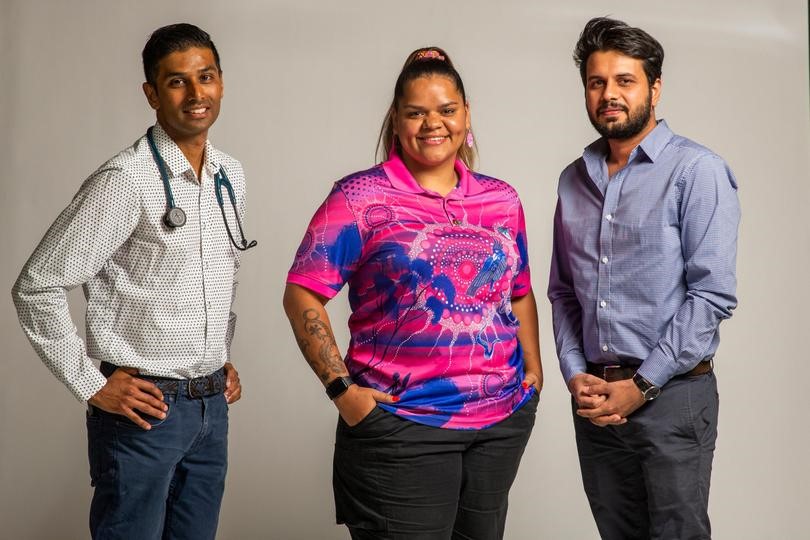COVID-19: Frontline health workers reveal worst is over but war goes on
14 February 2023
With the COVID pandemic entering its fourth year, The Sunday Times (12/02/23) spoke to health front-liners about their experiences, how they think the State is faring and what comes next.

Health workers talk about their time on the frontline of our COVID-19 defence.
Source: The West Australian
Clinical nurse consultant Rebecca Ruddy, who saw WA’s first COVID patients from the Ruby Princess and Artania cruise ships “literally crawling to us”, said the general public mostly no longer wanted to acknowledge that the pandemic was ongoing.
“People have become over it I’d say,” she said. “At the beginning they were very much, right, you know this is this what I’ll do. And then the last couple of months people are like ‘I’m done’. People don’t want to talk about it anymore."
“There’s quite a lot of COVID in the hospital and in the ED (emergency department) so we still see it.” Nurse Renee de Prazer has had a similar experience.
Having worked in hotel quarantine before she left her role with the State Health Incident Coordination Centre and now works at Bethesda private hospital - which offers daily reminders that the pandemic is ongoing.
WA has recorded nearly 1.3 million COVID cases in three years but Dr Sumit Sinha-Roy is not one of them. Dr Sinha-Roy, who has worked on everything from commissioning testing clinics to managing teams at quarantine hotels, said WA had yet to work out what the “new normal” will look like.
“It’s not over, it’s just different now,” he said. “The modelling says a pandemic takes about five years to establish the new normal, whatever that is.”
Despite his time on the frontline he dodged COVID while living on “four to five hours of sleep a night”.
“You’re just never switched off,” he said of the peak periods during the pandemic.
“My work phone literally melted because it couldn’t handle the combination of the phone calls, the text messages, the email pings. . . that wasn’t just for me, it was for everyone.”
If Perth has become laissez faire about COVID, rural communities are far less so. Clinical nurse Ali McQueen, who works in acute regional nursing now but helped run WA’s mass vaccination clinics at the peak of the rollout, said the regions were “way more vigilant”.
“They still take it very seriously,” she said. “The regions are very vulnerable — they have a high number of Indigenous communities — and those vulnerable populations are still very high risk. It can still wipe-out populations if it’s not properly controlled.”
Read the full article here: The West Australian (external link).